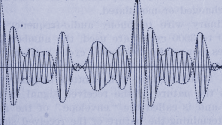Building a community is core to all open source projects. In fact, an open source project that lacks a community is likely missing the point of being open source. So what happens when your open project is designed to create communities?
While thinking of the next article for the Open Sound Series, I was listening to some music via Ampache. For those of you who are unfamiliar with Ampache, it is simply a piece of software that allows you to upload, download, and stream music (and now videos) from a collection of media residing on a server. It features the ability to have multiple catalogs, ratings of songs and videos, playlist creation (including "democratic playlists" that users vote for), tag editing, album art and streaming various formats of music. While most software designed to listen to music does many of the same things, Ampache is then able to take it a step further by adding the idea of concurrent users of a single instance of the software.
So while listening to something my wife was probably telling me to turn down, I realized that Ampache belongs to a breed of open source software (along with projects like Drupal and PHPBB) that has a community of developers creating software that is designed to build communities. Multiple users under one instance can use a shoutbox to tag their favorite songs or albums for all other users to see. Voting for playlists can be shared. It announces what others are listening to and keeps a list of recently listened tracks. Stats are kept and displayed so you know what is most popular. It's almost like being able to create a custom radio station.
Rather than write up my opinions of the software and bore readers with listing all the features that you can read on Ampache's page, I figured I'd dig a bit deeper. I was able to catch up with the project leader of Ampache, Karl Vollmer. He was kind enough to shed some light on Ampache's goals, current usage of their software in the wild, and observances he's made of communities popping up around Ampache.
To start off with, introduce yourself and your project.
My name is Karl Vollmer, and I have been the lead developer of Ampache for the last seven years. Ampache is a web-based application that enables you to stream/provide your music and movies to just about any Internet-enabled device in the world, from your mobile phone to your PS3 to your desktop computer.
Your software, much like PHPBB and Mediawiki, is designed around building communities. Can you give some examples of groups that are using Ampache to bring people together over music?
One of the most amazing uses of Ampache is by Chelsea School in
Washington DC. Ampache is used as a teaching aid allowing students to view video content on the computers at their own pace. They have even used it as a practical teaching tool by having a few students create a working VM with Ampache configured and set up ready to use. They've even gotten patches accepted to Turnkey Linux for an Ampache Application.
Some features, such as the democratic playlist, are obviously designed around this philosophy. In fact, your motto is "For the LOVE of music." Music has always been a shared experience. The need to share and a love for music are qualities almost every human in every society appreciates. How do you feel that Ampache fits into the grand scheme of sharing music?
I see Ampache as a way to remove the barriers to not only playback but sharing of your music. Not sharing in the sense of Napster, but being able to be halfway around the globe and play a song for your friend on their phone, PS3, NAS, or computer is really what Ampache is about. No longer will you have forgotten to load it on your iPod before you left. With democratic play, the idea was to allow a group of people in an office, apartment, or LAN party to collectively decide on the music. Rather then each person picking music one at a time, everyone decides together.
Speaking of community and sharing, your project is also open source--which carries an entirely different community with that. Do you see any overlap?
I think so. Many musicians collaborate and share their ideas, songs, stories. Some of my best memories have been sitting around a campfire with a few guitars and fiddles and everyone sharing a song or two with the group. Many of the stories start, "Owen taught me this up at the farm in Margree Forks." Much the same way I treat code, we all collaborate, albeit not around a campfire, and credit is given where credit is due.
The entertainment industry is often at odds with the open source philosophy, and the music industry is no exception. Has the closed nature of commercial music hampered your project at all? Also, what are your feelings towards DRM (digital rights management), digital copies and restrictive licenses in regards to music?
So far I haven't had any problems with the commercial music industry. In fact I'm a strong proponent of artists getting their fair share. If we don't support the artists, then we wouldn't have all the wonderful music that we do. I support my favorite artists by buying their CDs and going to their concerts. That said, I am very strongly opposed to DRM and the philosophy behind it. Since the DRM is dependent upon a specific and often non-standard method for unlocking the content, it increases the chances that in the future your music will all of a sudden stop working or require you to break the law in order to continue being able to listen to it. Music is such an integral part of the human condition, the idea of placing restrictions on who can listen to it seems fundamentally wrong to me.
Ampache has support for both patent-encumbered and patent-free file types and containers. Do you have a preference and why?
This is a hard one. While I support and encourage patent-free file
types, the reality of it is, formats such as MP3 will work just about
everywhere, while OGGs don't. My personal preference from a usability standpoint is MP3s specifically. However I make every effort to ensure that the patent-free file types work and file bug reports against players that do not handle them correctly in an attempt to increase their market share.
What would be your ultimate goal/milestone that you'd like to see Ampache reach?
I'm not sure if I really have any ultimate goals for Ampache. I like
to work in small steps. My current goal is two-fold: First to simplify the installation of Ampache to a point where my non-techie friends could install it. Second would be to simplify the use/interface of Ampache to a point where my non-techie friends on their somewhat misconfigured or messed-up computers would still be able to use it. I'm not sure how to fix those two issues, but they are what I'm focusing on these days. Ask me again in nine months and it will be something else... hopefully :)
Thanks to Karl for lending his time for the interview. Please let us know of your success stories using Ampache or other open source software in the comments, or just let us know what you think about the project itself.







1 Comment